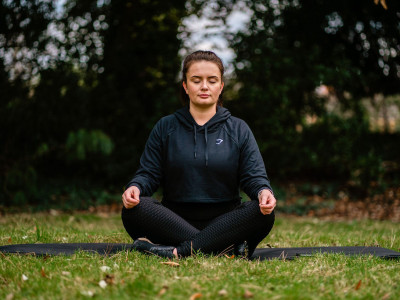- Home
- Anxiety
- Depression
- Emotional Eating
- Living with a long term health condition - Our Talking Health team
- Loneliness
- Menopause
- Mindfulness
- Obsessive compulsive disorder (OCD)
- Panic Attacks
- Phobias
- Pregnancy & Parenthood
- Prolonged Grief (Grieving)
- PTSD
- Sleep Difficulties
- Stress
- Veterans mental health
- Needs We Can and Cannot Meet
- Cognitive Behavioural Therapy (CBT)
- Eye Movement Desensitisation & Reprocessing (EMDR)
- Employment Support
- Counselling for Depression
- Online Self-help
- Mindfulness
- Wellbeing Workshops
- Join the team
- What to expect at your first appointment
- Testimonials
- Talking Health team
- Learn about mental health
- FAQs
- Mental Health Resources
- Blog
- Video Appointments
- Supporting someone through TALKWORKS: A guide for carers and loved ones
- Your feedback
- Making contact if you are deaf
- I need help now
Access support from TALKWORKS
Self-refer to TALKWORKSAccess support from TALKWORKS
Self-refer-
What we can help with
- Anxiety
- Depression
- Emotional Eating
- Living with a long term health condition - Our Talking Health team
- Loneliness
- Menopause
- Mindfulness
- Obsessive compulsive disorder (OCD)
- Panic Attacks
- Phobias
- Pregnancy & Parenthood
- Prolonged Grief (Grieving)
- PTSD
- Sleep Difficulties
- Stress
- Veterans mental health
Access support from TALKWORKS
Self-refer to TALKWORKS - How We Can Help You
- About Us
- Useful Resources
- Get in touch
- Self-refer
What is Social Anxiety Disorder?
The National Institute of Health and Care Excellence describe Social Anxiety Disorder as a ‘persistent fear of or anxiety about one or more social situations that is out of proportion to the actual threat posed by the situation.’ This fear or phobia of social situations is one of the most common forms of anxiety. It can often start in teenage years but can trouble many of us for years after. The good news for anyone struggling with Social Anxiety Disorder is that you are not alone in this. A variety of treatment options are available to help manage the symptoms, and services like TALKWORKS can support you and help you to overcome the difficulties you are experiencing.
What does social anxiety look like?
People who suffer with Social Anxiety Disorder (SAD) can feel their problems relate to low self-esteem or a depressive episode. All too often people do not seek support (usually as a result of the difficulty that they are experiencing). Those suffering from social anxiety can feel ‘apart’ and ‘separate’ from others, and some may believe that they are being judged negatively. Examples of common thoughts associated with SAD might be, “They’ll just think I’m stupid.” or “I haven’t got anything important to say, they’ll think I’m dull and boring anyway.”
Experiences can be different for everyone, but people who suffer from SAD may experience any of the following:
- Overanalysing and worrying about what to say in a social situation
- Avoiding direct eye contact
- Paranoia about what others are thinking
- Only leaving the house at quieter times in the day
- Panic attacks, brought on by overwhelming anxiety
- Sweating or shaking excessively
This can result in heavy disruption of day-to-day life. If you have social anxiety, you may find that you start to avoid social situations and withdraw from things that you previously enjoyed.
What support is available?
There are a number of different treatment options which can help social anxiety disorder. Our TALKWORKS team of therapists can work with you using Cognitive Behavioural Therapy (CBT) to help you to feel better again. By listening to your experiences and understanding more about your difficulties, our Clinicians will be well placed to advise you on treatment that may work well for you.
If you are concerned, we have a number of different therapy options to help people who might otherwise struggle to engage in the process. Our team will assist you all we can to help you engage. Making small changes can have a huge impact on your daily life.
Therapy can be carried out in a number of different ways, depending on your preference. We offer face-to-face appointments with a therapist at our sites across Devon. We also offer remote therapy, either by phone or video call, for those who prefer to receive treatment from the comfort of their own home.
If you would like to find out more about our services, please call us on 0300 555 3344 (Monday to Friday from 9am – 5pm) or complete our online self-referral form and a member of our team will be in touch.
Related Posts

Understanding prolonged, complicated or traumatic grief
Posted by Sarah Goff on 7 August, 2025

Restoring the mind: Exploring positive mood and self-control in the mindfulness graduates workshop
Posted by Clare Watkins on 2 June, 2025

